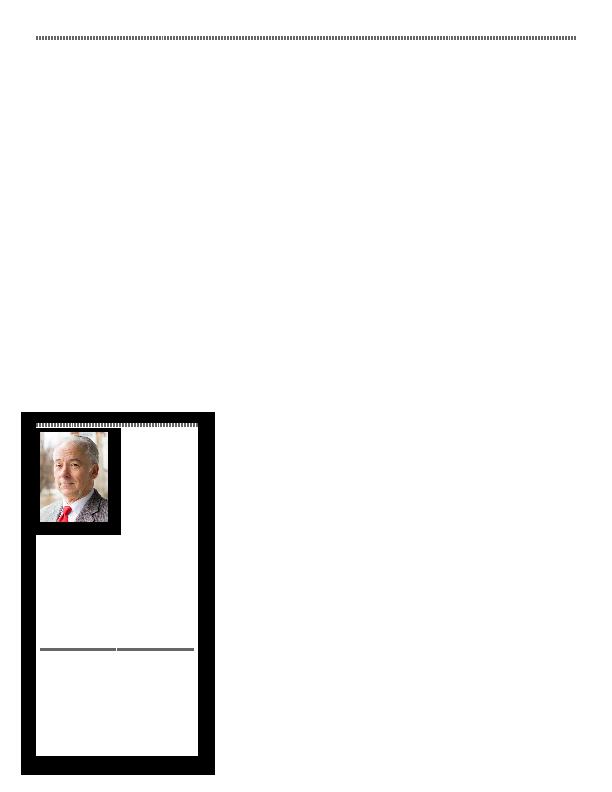
What Remains and What Can Be Done?
stressful for insurance claims technicians,
and expensive for the companies that
employ them. The stark contrast between
the severe legal consequences that attend
claim errors and the seeming impunity of
insured's counsel who engage in set-up
tactics is not lost on most in the industry.
stop using the term, which has fallen into
judicial disrepute. Inspiring though it
may be to the besieged claims manager, it
leaves judges cold, for reasons that derive
concept of "bad faith" is predicated on
the breach of the covenant of good faith
and fair dealing implied into contracts,
including insurance policies. The implied
covenant applies to both insurers and
insureds. Insurers can't vindicate their
rights against uncooperative (or worse)
insureds with reverse bad faith actions
because of the differing expectations of
insurer and insured. Simplistically, the
insured has an expectation of peace of
mind, and the insurer has an expectation
of a premium. Because of this distinction,
most jurisdictions have rejected "reverse
bad faith." California, for example, does
not recognize reverse bad faith as a discrete
affirmative tort defense, or as the basis for a
cross-claim in tort.
Some insurers are misled by a rhetorical
bone tossed to them by the judiciary. Bad
faith claims are by nature a hybrid of tort
and contract. The authority holds that an
insurer cannot bring a tort cause of action
against an insured for breach of the implied
covenant. Untouched, in theory, is the
insurer's right to recover on a contractual
theory. But the scope of damages
recoverable on a contract claim is narrower
than in tort. Tort recovery generally
embraces all harm in which the defendant's
conduct was a substantial factor, even if
not anticipated; for example, the "eggshell
plaintiff." Contract damages, on the other
hand, extend only to loss likely to occur in
the ordinary course of events. A contractual
claim for bad faith that simply seeks the
same damages recoverable for breach of
contract is prone to dismissal on a pleading
motion as superfluous.
Fitting the contractual measure of
damages to the detriment an insurer
incurs when an insured is in bad faith
context, an uncooperative insured
forces the insurer to expend exceptional
adjustment and legal expenses, or to offer
more in settlement than warranted. But
courts begin their analysis with the premise
that the burden of uncertainty of litigation
is precisely what the insurer assumed. This
places on the insurer the burden of proving
how much more it spent, as a legal result of
the insured's misconduct. In one first party
case, where the insurer sued an insured for
the expense of investigating a fraudulent
theft claim, the court declined recovery.
It noted that the insurer had a duty to
investigate, with the attendant expense.
It was incumbent on the insurer to prove
the extent to which its expense was caused
by fraud. In the context of a "reverse"
contractual bad faith claim, the insurer
would need to prove the amount of expense
attributable to the insured misconduct, as
distinguished from the expense inherent in
adjusting a legitimate claim.
In the context of liability insurance,
proof of how much more an insurer
spent on defense because of an insured's
uncooperative conduct is especially
problematic. A principal witness in that
dispute will be the panel counsel. The
ethical conflict presented, when the
insurance client enlists their aid to prove
damages against the insured client, is
obvious.
It is virtually certain that a liability
insurer would be precluded from bringing
a contractual bad faith claim while the
liability case is pending. The insured will
file a motion to stay the insurer's suit, on
the grounds that its issues overlap with the
liability case issues, confront the insured
with a "two-front war" and risk disclosure
& Lane, LLP, a firm that specializes in the
representation of insurers, and of corporate or
government insureds, which has been his focus
for 38 years. He is also retained for consultant
and expert witness services in property and
casualty claims-handling disputes.
3620 American River Drive
Suite 218
Sacramento, California 95864
farmersmithlaw.com